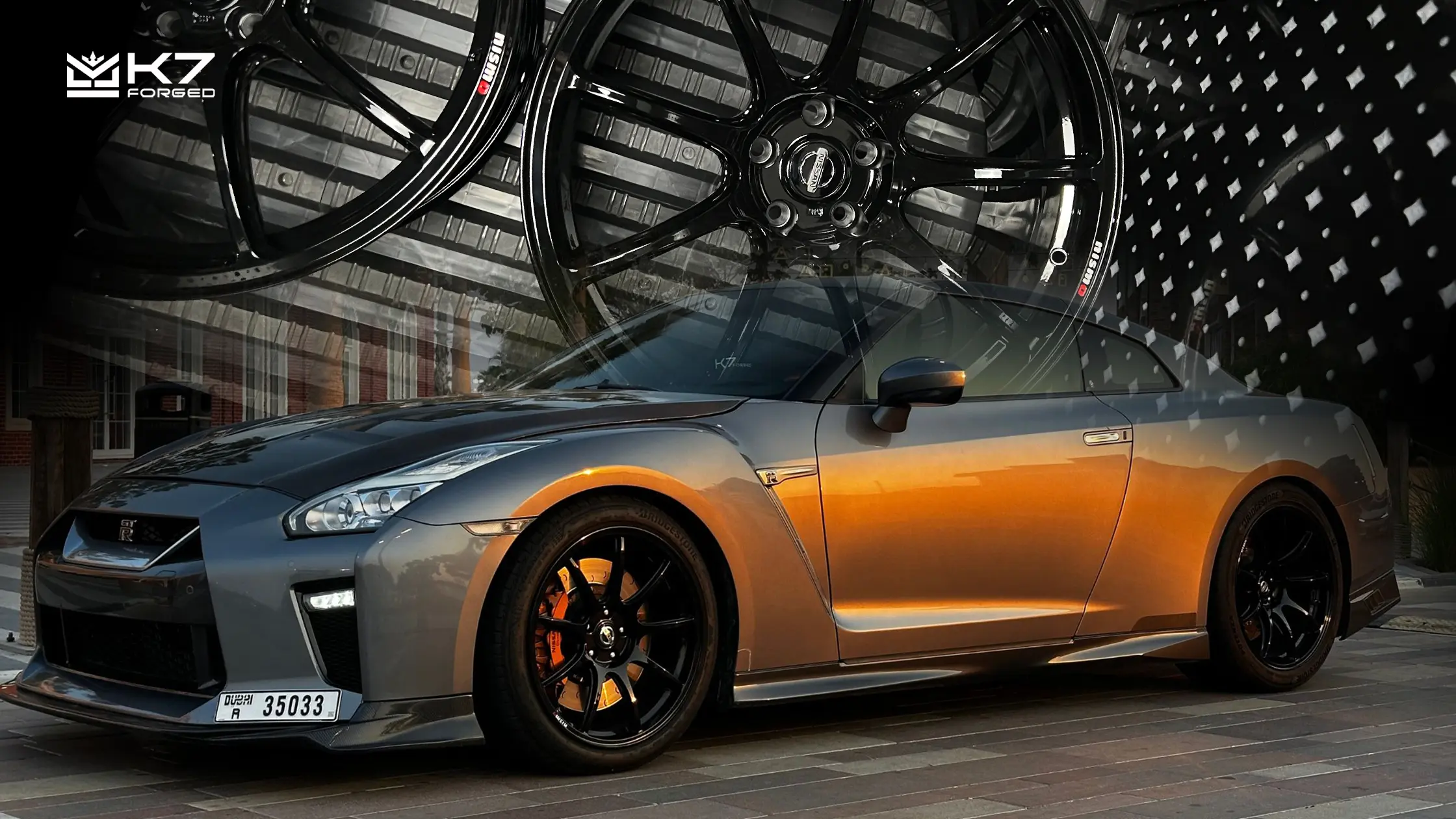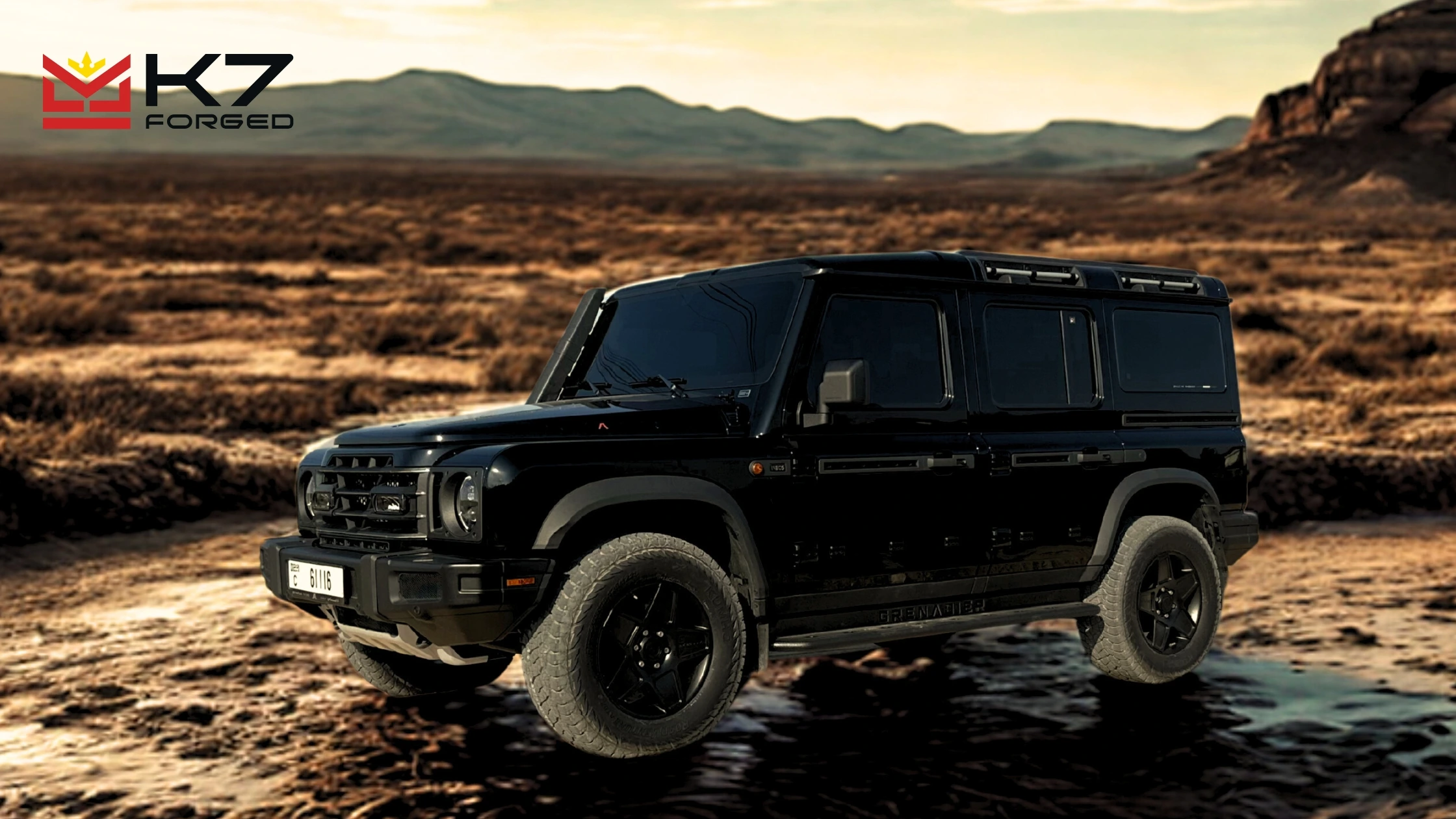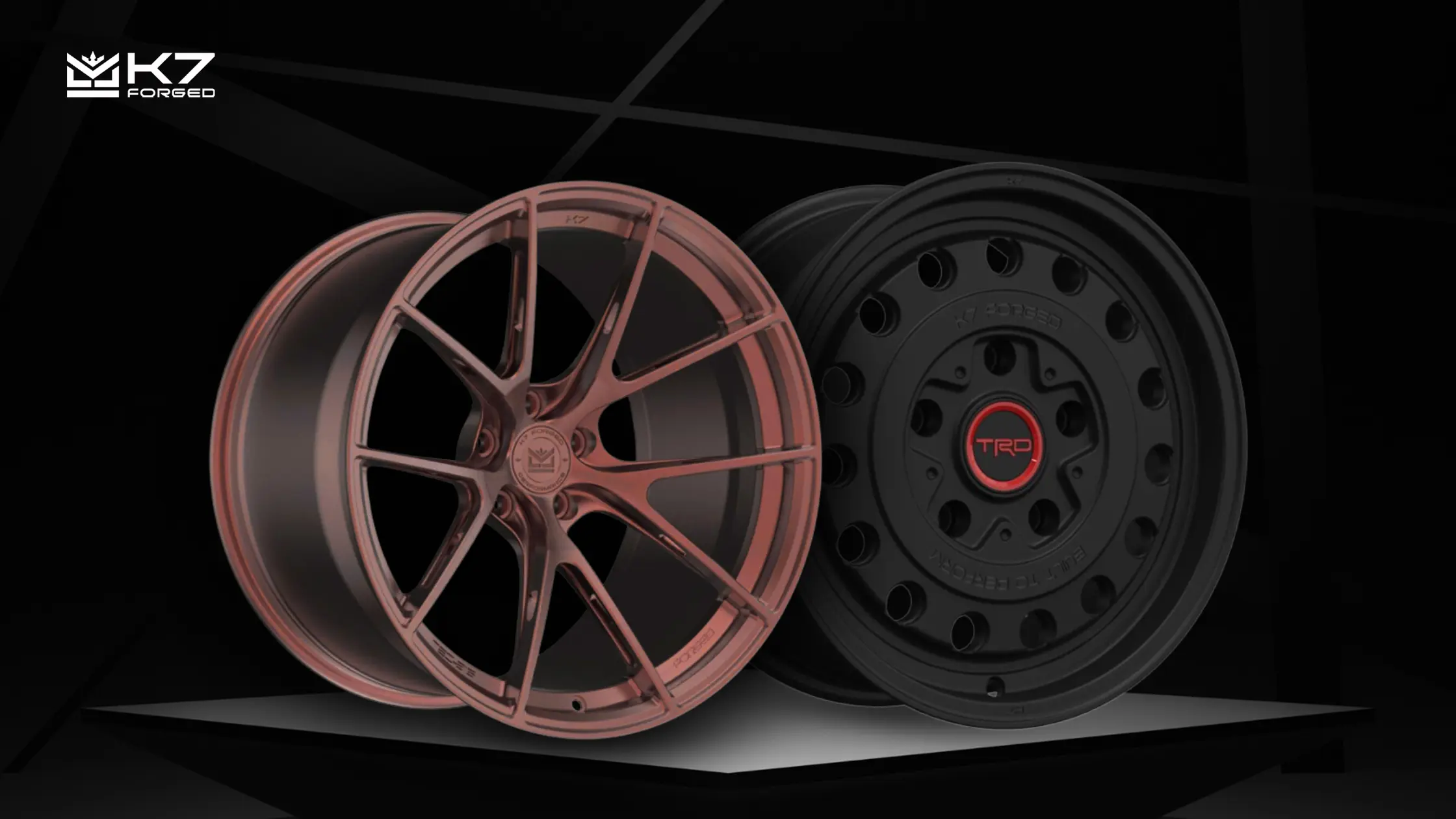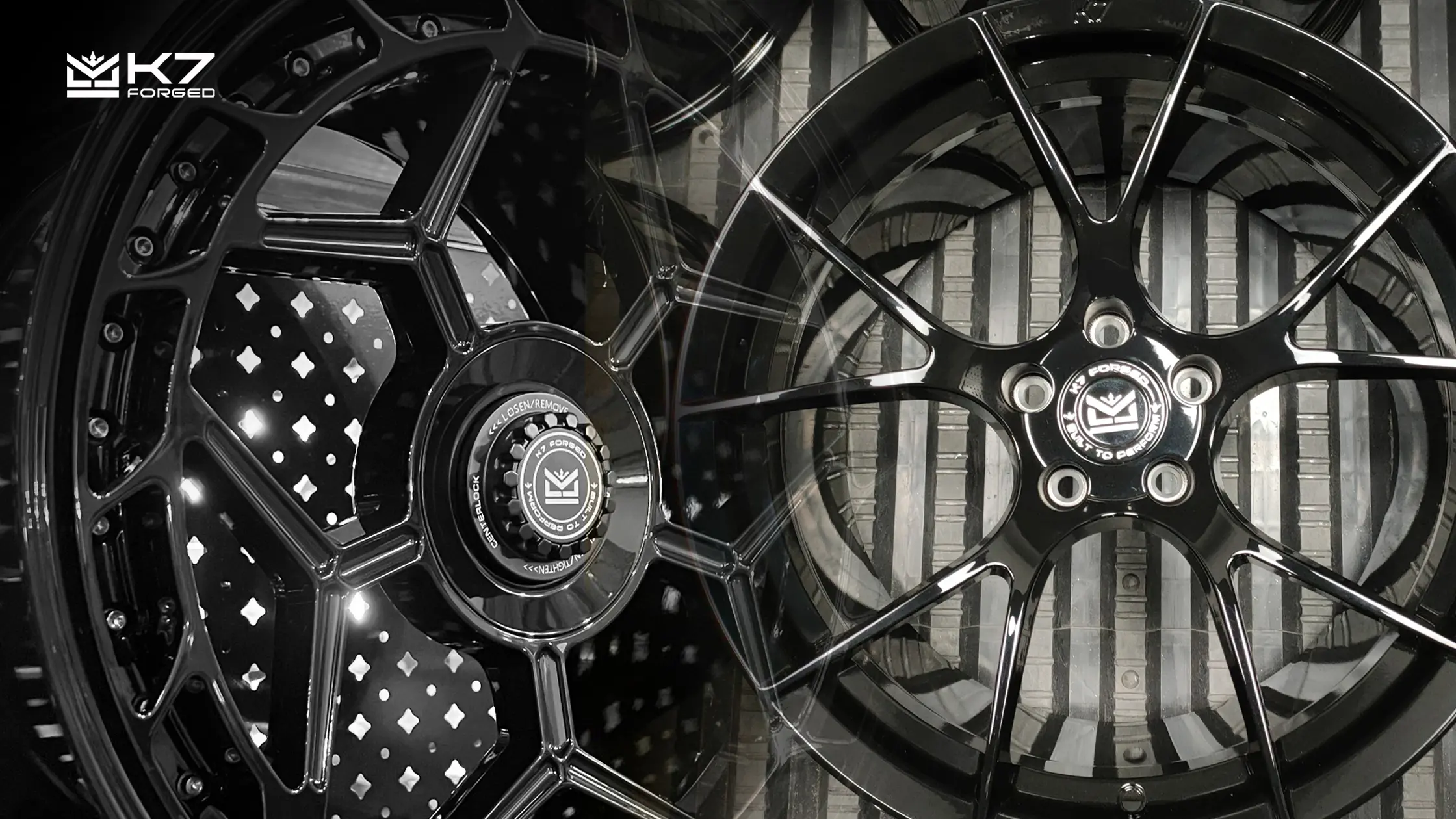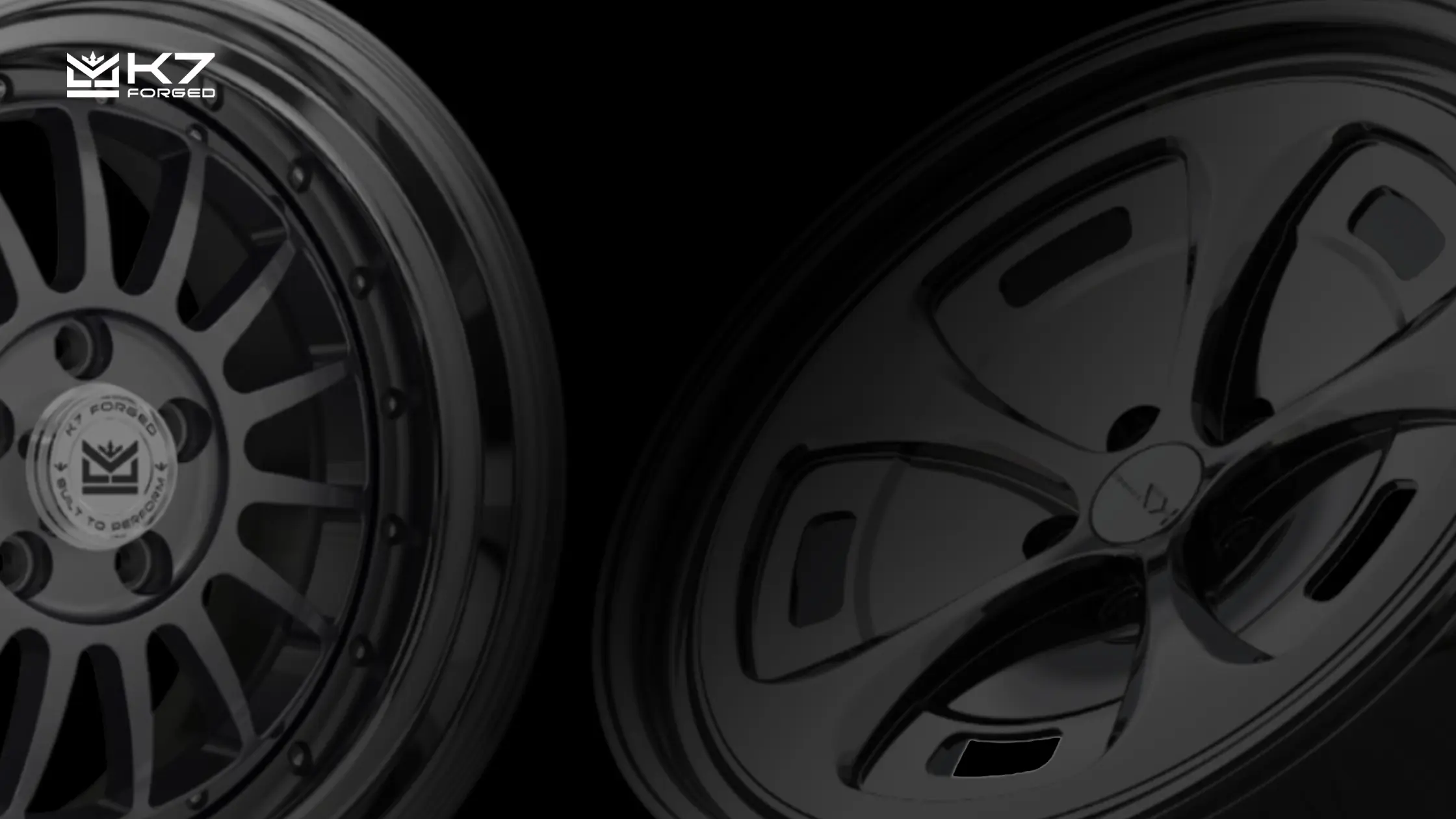In automotive performance, every detail matters. Besides giving your car a new look, alloy wheels and custom wheel rims improve handling and safety. Coupled with the right tyre pressure, they give you a significantly exciting driving experience, be it on the city roads or off-road with 4×4 Beadlock rims.
As UAE’s premiere store for aftermarket wheels, K7 Forged is here to help you understand how the right tyre pressure is crucial for your alloy wheels. We’ll advise you on optimizing your car’s performance with the perfect combination of alloy wheels and precise tyre pressure.
All You Need to Know about Alloy Wheels
Alloy wheels are usually made from aluminium or magnesium alloys. Most people prefer aluminium alloys as they balance strength, weight, and cost-effectiveness. They are lighter than steel, and so reduce the vehicle’s unsprung weight. This improves handling and acceleration.
Magnesium alloys are less common due to their higher cost. But they provide even greater weight savings and are used in high-performance racing where every gram counts.
Types and Applications of Alloy Wheels
- Drag Racing Wheels: These wheels are extremely lightweight to improve acceleration. They feature a minimalistic design to reduce weight and improve aerodynamic efficiency.
- Track Racing Wheels: These can handle extreme forces during high-speed cornering and braking. They are typically forged to maximize strength while minimizing weight.
Read this blog to learn more about drag and track racing wheels.
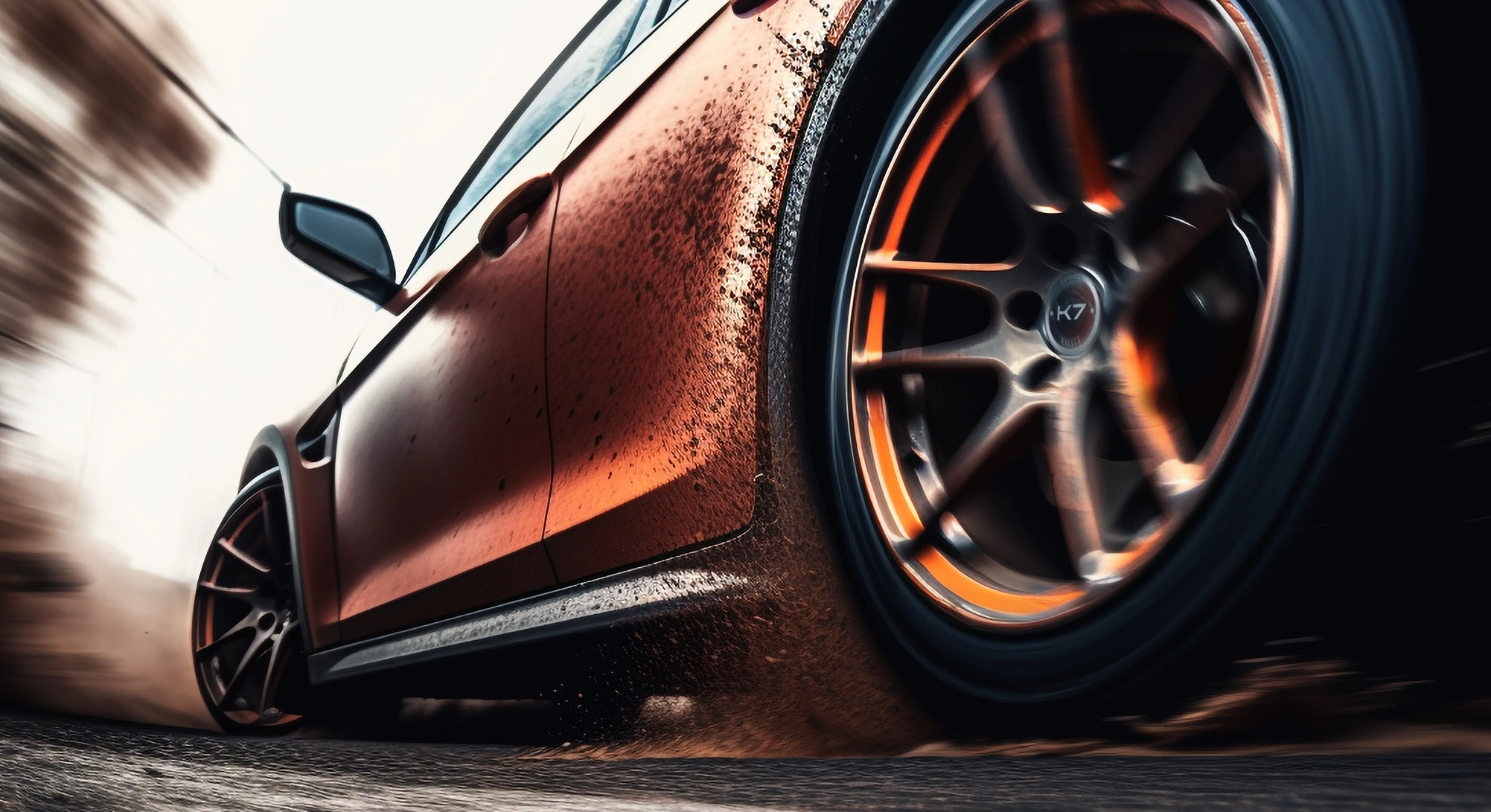
- Off-Road Forged Wheels and Beadlock Wheels: Off-road wheels need to withstand harsh conditions. Forged off-road wheels offer the durability needed to handle rocky and uneven terrains. Beadlock wheels keep the tyre bead secured to the rim even at very low tyre pressures, which is crucial for maintaining traction on loose surfaces like sand or mud.
Advantages of Alloy Wheels
- Weight reduction
- Improved heat dissipation
- Enhanced handling
- Better aesthetics
- Corrosion resistance
- More customization options
Choosing the Right Alloy Wheels for Your Car
Selecting the right alloy wheels depends on your vehicle type and driving style:
- Daily Driving: For everyday use, cast aluminium wheels offer a good balance of performance, cost, and aesthetics. But if you are a driving enthusiast, custom wheel rims are best for you. Read more about why you should invest in custom wheels.
- Performance Driving: For high-performance and racing applications, forged wheels are the better choice due to their superior strength and lighter weight. They can withstand the forces during high-speed driving and quick cornering.
- Off-Road Use: For off-road enthusiasts, forged wheels and beadlock designs are essential. These wheels provide the durability to handle tough terrains and the ability to run lower tyre pressures without the risk of de-beading.
All You Need to Know About Tire Pressure
Properly inflated tyres make the right amount of contact with the road. This improves grip and handling. Underinflated tyres can lead to increased wear, higher rolling resistance, and reduced fuel efficiency. They also cause excessive heat buildup. Conversely, overinflated tyres reduce the contact patch with the road, leading to a harsher ride and uneven tyre wear.
Maintaining the correct tyre pressure maximizes the lifespan of your tyres and ensures a safe drive. The optimal pressure varies depending on the vehicle and driving conditions, so it’s important to refer to the manufacturer’s recommendations.
Optimal Tire Pressure Settings
Daily Driving
For everyday driving, you can follow the manufacturer’s recommended tyre pressure. It is usually found in the vehicle’s manual or on a sticker inside the driver’s door. This gives your car a perfect balance between performance, safety, and tyre longevity.
Racing Conditions
In racing, even the slightest adjustments in tyre pressure can significantly impact performance. Lower pressures can increase the tyre’s contact patch, improving grip. However, too low pressure can lead to excessive sidewall flexing and overheating. Conversely, higher pressures reduce rolling resistance but can decrease traction. So you need to fine-tune tyre pressure for specific track conditions and driving styles.
Off-Road Adventures
Off-road driving requires lower tyre pressures to get better traction on loose surfaces like sand, mud, and rocks. Lower pressure allows the tyre to conform to uneven terrain, improving grip and reducing the risk of punctures. Aluminium ring beadlock wheels are best in off-road settings as they prevent the tyre from de-beading at low pressures.
What Should the Tyre Pressure be for Track Racing?
For track racing, we recommend starting with the manufacturer’s baseline pressure and then adjusting based on track conditions. Small increments (0.5-1 psi) can make a significant difference. Using a high-quality tyre gauge and monitoring temperatures with a pyrometer can help fine-tune pressures.
What Should the Tyre Pressure be for Off-Roading
For off-road driving, reducing pressure to around 15-20 psi can improve traction. However, avoid going too low, as it can damage the tyre and wheel. 4×4 beadlock wheels are great here, as they allow for lower pressures without the risk of the tyre coming off the rim.
Alloy Wheels and Tire Pressure Management
Giving your car high-quality alloy wheels with optimal tyre pressure management can significantly enhance performance. Regular maintenance practices, including pressure checks, alignment, and using the right wheels for your driving needs, ensure the best performance and longevity of both your wheels and tyres.
K7 Forged provides a ton of options for aftermarket wheels throughout the UAE. Order alloy wheels online.

